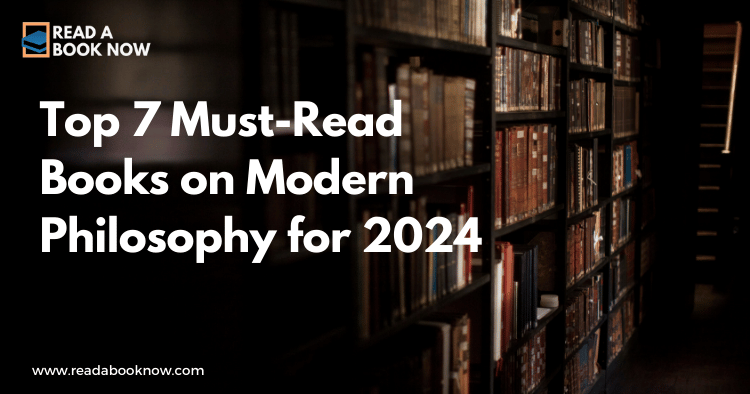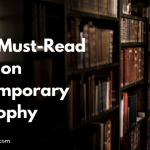Table of Contents
- Introduction
- 1. “The Age of Surveillance Capitalism” by Shoshana Zuboff
- 2. “How to Be an Antiracist” by Ibram X. Kendi
- 3. “The Philosophy of Modern Song” by Bob Dylan
- 4. “The Good Life: Lessons from the World’s Longest Scientific Study on Happiness” by Robert Waldinger and Marc Schulz
- 5. “Freedom Is a Constant Struggle” by Angela Y. Davis
- 6. “What We Owe to Each Other” by T.M. Scanlon
- 7. “The Moral Landscape” by Sam Harris
- FAQs
- Conclusion
Introduction
Modern philosophy has become increasingly relevant in our fast-paced, interconnected world. With questions surrounding ethics, identity, and the implications of technology continuously arising, diving into contemporary philosophical texts can provide invaluable insights. Whether you’re a philosophy aficionado or just looking to expand your horizons, the following seven books are essential reads for 2024.
1. The Age of Surveillance Capitalism by Shoshana Zuboff
Shoshana Zuboff’s “The Age of Surveillance Capitalism” explores how major tech companies manipulate personal data to influence behavior and shape society.
Key Themes:
- Surveillance and Privacy: The book argues that personal information is the new currency, leading to a loss of individual privacy.
- Behavioral Control: Zuboff discusses how data can be used to predict and influence behavior, impacting democracy and freedom.
Why You Should Read It:
As we navigate a digital age, understanding the implications of surveillance capitalism is crucial. This book is a wake-up call for consumers and policymakers alike.
2. How to Be an Antiracist by Ibram X. Kendi
Ibram X. Kendi’s “How to Be an Antiracist” challenges readers to confront their own biases and take an active role in dismantling racism.
Key Themes:
- Racism vs. Antiracism: Kendi distinguishes between being “not racist” and actively fighting against racism.
- Intersectionality: The book highlights how various forms of discrimination intersect with each other.
Why You Should Read It:
This book is not only a philosophical treatise but also a practical guide for individuals seeking to understand and combat racism in their everyday lives.
3. The Philosophy of Modern Song by Bob Dylan
In “The Philosophy of Modern Song,” Bob Dylan shares his thoughts on the art of songwriting, merging philosophy with lyrical creativity.
Key Themes:
- Art and Existence: Dylan reflects on the significance of music and lyrics as a form of philosophical expression.
- Cultural Commentary: Each song discussed serves as a lens through which to view societal issues.
Why You Should Read It:
For music lovers and philosophers alike, this book provides a unique perspective on how art can reflect and influence our understanding of the world.
4. The Good Life: Lessons from the World’s Longest Scientific Study on Happiness by Robert Waldinger and Marc Schulz
“The Good Life” draws from decades of research to reveal what truly contributes to human happiness.
Key Themes:
- Relationships Matter: The study emphasizes that strong relationships are the key to a fulfilling life.
- Mental Well-being: Insights into how emotional health impacts overall happiness.
Why You Should Read It:
This book merges philosophy with empirical research, offering practical advice on how to lead a happier life based on scientific findings.
5. Freedom Is a Constant Struggle by Angela Y. Davis
Angela Y. Davis’s “Freedom Is a Constant Struggle” compiles her essays and speeches on social justice and activism.
Key Themes:
- Intersectional Feminism: Davis discusses how issues of race, class, and gender intersect.
- Activism: The book serves as a call to action for readers to engage in social movements.
Why You Should Read It:
Davis provides a powerful voice in contemporary philosophy and social justice, making it essential for anyone interested in activism.
6. What We Owe to Each Other by T.M. Scanlon
In “What We Owe to Each Other,” T.M. Scanlon presents a fresh perspective on moral philosophy, focusing on the idea of mutual accountability.
Key Themes:
- Moral Obligations: The book delves into what it means to owe something to another person.
- Social Contracts: Scanlon discusses the implications of social contracts in contemporary society.
Why You Should Read It:
This book is a profound exploration of ethics and morality, encouraging readers to consider their responsibilities to one another in a complex world.
7. The Moral Landscape by Sam Harris
Sam Harris’s “The Moral Landscape” argues for a scientific foundation for morality, challenging traditional philosophical views.
Key Themes:
- Morality and Science: Harris suggests that moral truths can be discovered through scientific inquiry.
- Human Well-being: The book posits that the best moral actions are those that promote human flourishing.
Why You Should Read It:
For anyone questioning the foundations of morality, Harris provides a thought-provoking analysis that bridges philosophy and science.
FAQs
What defines modern philosophy?
Modern philosophy typically refers to philosophical thought that began in the 17th century and has evolved through the contemporary era, focusing on issues like individualism, identity, ethics, and the impact of technology.
Why should I read philosophy?
Philosophy encourages critical thinking, deepens understanding of complex issues, and helps individuals develop their moral and ethical frameworks.
Are these books suitable for beginners?
Yes! Each of these books is written in an accessible manner, making them suitable for both beginners and seasoned readers.
Conclusion
Exploring modern philosophy through these seven must-read books will not only enrich your understanding of contemporary issues but also inspire personal growth and social consciousness. As we step into 2024, dive into these texts and engage with the philosophical questions they raise. Happy reading!
By following this guide, you’re well on your way to diving into the profound and thought-provoking world of modern philosophy. Don’t forget to share your thoughts on these books in the comments below!



